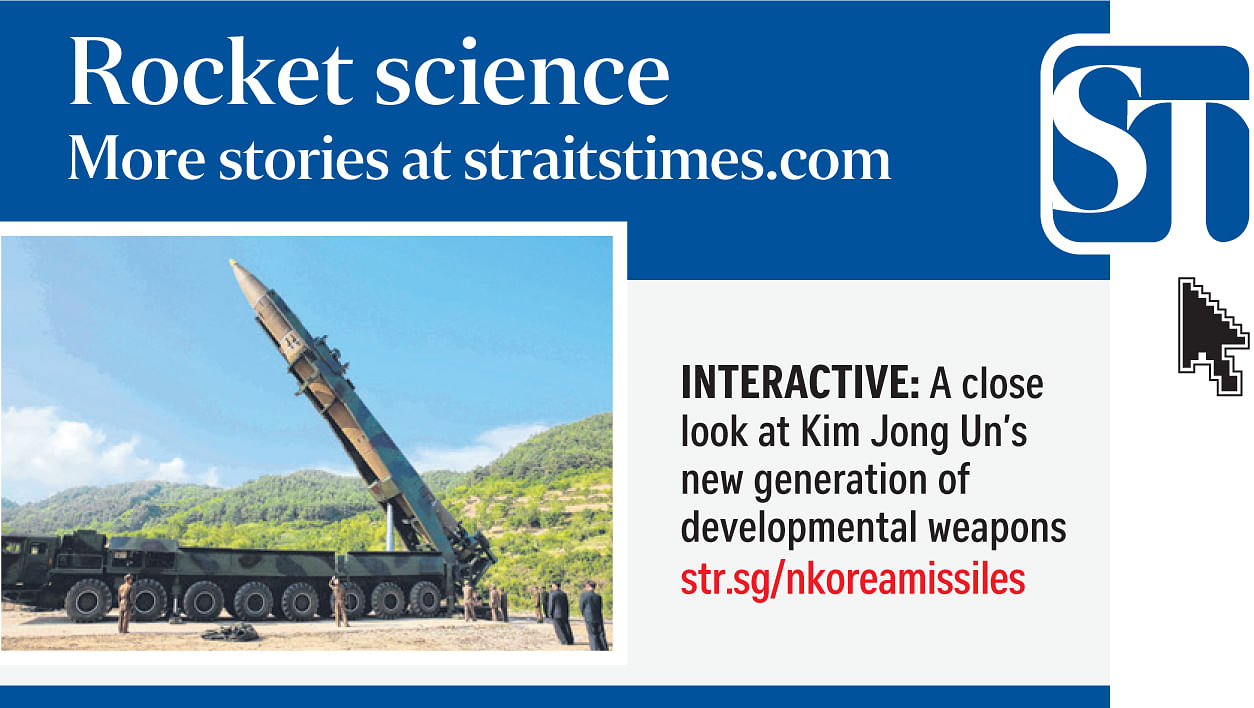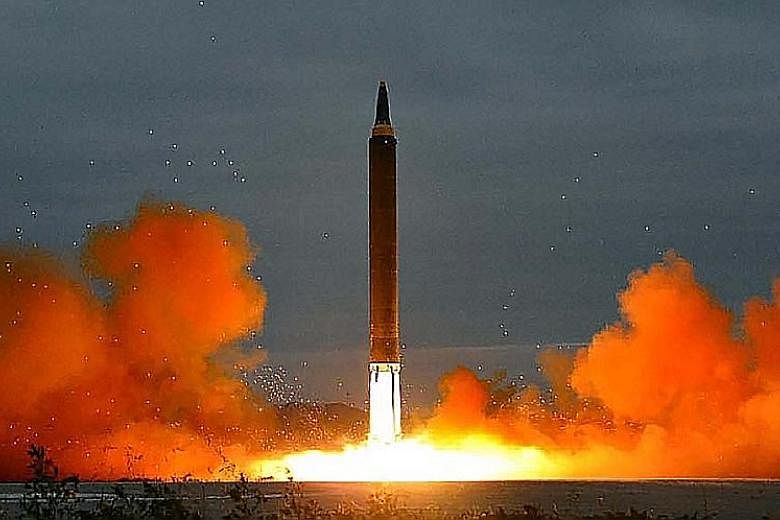The US has been put on the spot again by North Korean dictator Kim Jong Un and is faced with ever narrowing options, with sanctions not seeming to work.
One option that was tossed up is the possibility of shooting down the next missile Pyongyang test-fires.
Early yesterday, the US Missile Defence Agency said the Navy has successfully conducted a missile defence test - scheduled before the missile test by North Korea on Tuesday - off the coast of Hawaii. A Standard Missile-6 guided missile intercepted a medium-range ballistic missile target.
At around the same time, President Donald Trump, who said "all options were on the table" after Pyongyang's latest provocation, appeared to rule out dialogue, in a comment on Twitter. He wrote: "The US has been talking to North Korea, and paying them extortion money, for 25 years. Talking is not the answer!"
It was not clear what he was referring to by "extortion money", but the US has over the years given money to North Korea as humanitarian assistance.
Analysts told The Straits Times that the US has limited options besides sanctions and diplomacy, and any other option ranges from risky to catastrophic.
Former director of national intelligence James Clapper told news channel CNN on Tuesday that for the first time, he agreed that US options were limited.

Others noted that shooting down a missile comes with risks.
"Of all the military options, shooting down a missile is (of) the lowest risk but it's not without risk," Ms Sue Mi Terry, a North Korea expert with consultancy Bower Group Asia, told The Straits Times.
She added: "A shoot-down would be worthwhile to reassure the Japanese and South Koreans and maintain deterrence. But if it fails, our deterrence will be compromised.
"And even if it succeeds, it is unlikely to dissuade Kim Jong Un from building ICBMs (intercontinental ballistic missiles). If anything, his incentive will be to build more to overwhelm our kmissile defences."
On Tuesday, US Ambassador to the United Nations Nikki Haley said: "Enough is enough.
"No country should have missiles flying over them like those 130 million people in Japan. It's unacceptable," she said, adding that North Korea has "violated every single UN Security Council resolution that we've had, and so I think something serious has to happen".
But Dr Sung-Yoon Lee, professor of Korean studies at the Fletcher School of Law and Diplomacy at Tufts University in Boston, noted that the US has been saying the same thing for more than 25 years.
"Haley made strong comments and she was correct, but it is the same refrain we've heard not only from the US but also from Seoul, Tokyo and Beijing," he told The Straits Times over the phone.
In a phone interview, Mr Will Saetren, a research associate at the Institute for China-America Studies in Washington, said: "We are already in a deterrence relationship with North Korea and that's been the reality for some time.
"The nuclear dimension has now been added. North Korea is without doubt a demonstrated nuclear power. That ship has sailed."
If the US tries but fails to shoot down a North Korean missile, he said, it would be a huge blow to the illusion of security the US is giving to its allies and to its own public. "We actually benefit more from having the system, saying it works, than actually using it in a real-life scenario. We are kind of buying time by not actually using it in realistic conditions," he said.
Dr Lee said it would be good if the US hit a North Korean missile, and did not think this would trigger a retaliation from Pyongyang. He noted, however, that North Korea "will continue to test missiles regardless, because they have a political and a systemic need to do so".
He added: "This is a step by step, inch by inch gradual escalation and they will maintain a sort of acceptable threatening posture for months to come. And the response of the international community will be that this is outrageous and unacceptable and something serious needs to be done - and nothing serious is likely to be done."
Speaking to CNN, Mr Clapper conceded: "We may have to hold our nose and we may have to consider some concessions" to North Korea.

